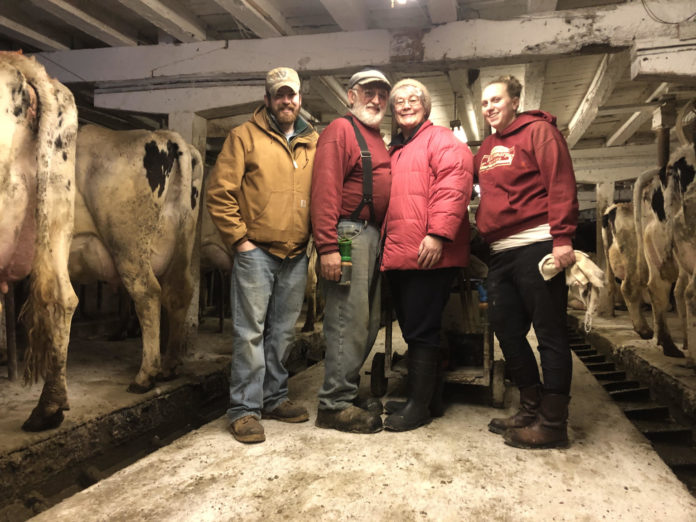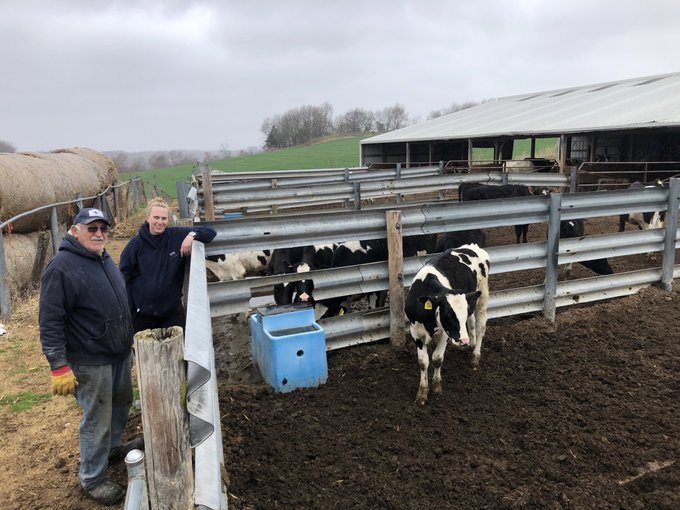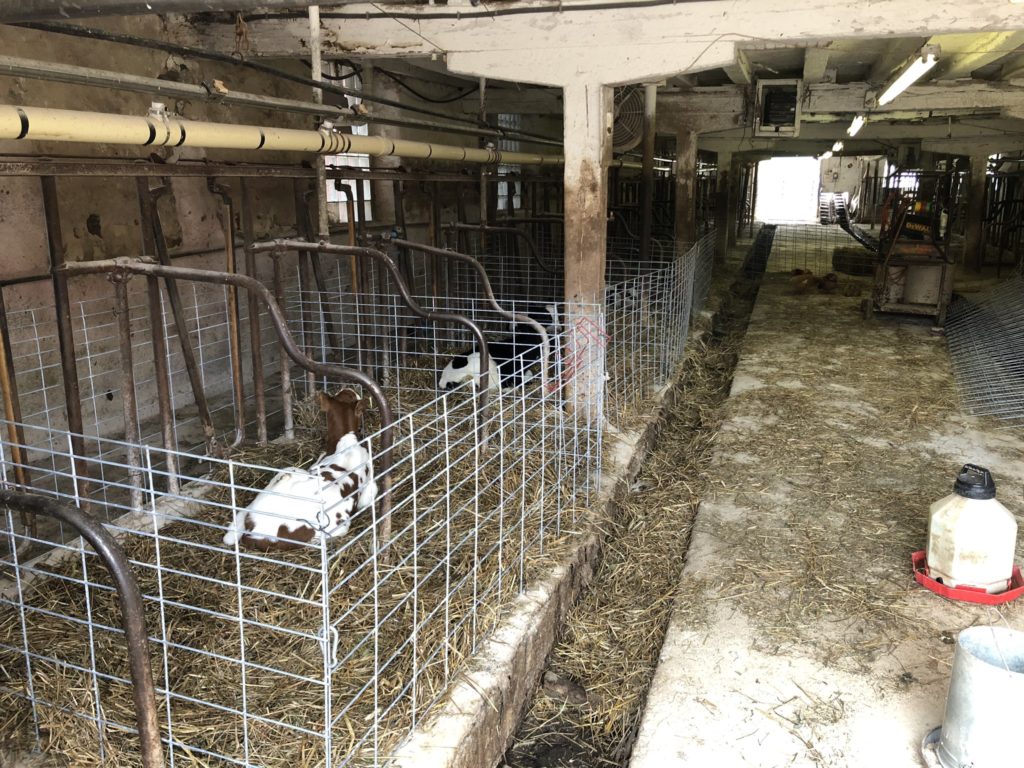
A month ago, the Reisingers of Spring Green said farewell to 60 dairy cows after more than a century of milking on the homesteaded property in the Driftless Area.
Jim Reisinger, choking up, reflected on the morning of March 12. He recalled the milkman had tears in his eyes leaving the Reisinger driveway with the last load of milk. He had been to the farm every morning for 25 years picking up the family’s milk. But while the milkman no longer takes the winding Schweppe Road every morning, the family continues to be a part of the dairy supply chain.
“There is life after milking cows, and you can still farm without milking cows. Now it’s time for transitioning to make our life as good as it can be,” Jean Reisinger told WisBusiness.com at the farm.
Jim and Jean are approaching their 70s, and the labor-intensive work of milking cows is getting tough. Jim added that contracting COVID-19 was a sign that it was time to slow down. A northern Wisconsin farm bought the cows, and the Reisinger family was pleased with the sale.
“They’re all together. That’s what I wanted,” Jim said.
With their adult children Brian and Malia, and soon-to-be four grandchildren, the Sauk County farm continues to operate over 100 years after it was homesteaded by Jim’s grandfather in 1912.
The Reisingers tend to about 280 acres of hay, corn and soybeans. They will continue cash cropping. And while one would expect the farm to be silent without cows, the Reisingers keep about 80-head of cattle on-farm, raising steers and custom heifers as Reisinger Hilltop Heifers.


And last but not least, Jim keeps bees. His apiary produces Jim’s Hilltop Honey.
Jean and Jim praised their son and daughter’s work organizing a new business model for the farm’s transition that allows the family to be profitable without milking. And Brian praised his parents for operating a small dairy farm debt-free for over 45 years that allowed him and his sister to develop a strategic plan for the family business.
“Not everybody gets that chance,” said Brian, who is also the president and COO of Platform Communications. “Too many small farms are just going by the wayside.”
Small is the correct adjective for a 60-cow dairy farm these days. Jean explained that when the couple took over the dairy farm in 1976, they had 32 cows. That was a big operation then, she said.
“Now 60 cows is a very small farm,” she continued. “Our goal was always to keep it as a family farm. Now farms have become more like a corporation. Everything has become numbers, and it’s a different world now. Farms have become more like factories than they have small families, and we wanted it to be a family farm, and that is what we continued. Everything we did was so the two of us could operate as a family and not have a lot of staff.”
Jean currently serves on the lobby organization FarmFirst Dairy Cooperative board. She’s also served on Dairy Farmers of Wisconsin, the Farm Bureau Federation, and other farm boards and consumer cooperatives related to farming.
Citing USDA data, the Milwaukee Journal Sentinel reports the number of cows in Wisconsin has remained steady over the past 20 years. However, more and more of those cows are part of larger operations. The number of cows on small operations — one to 99 cows — has steadily decreased every five years since the late 90s.
“At our stage in life, we just kind of want to diversify and do what we can handle,” Jean said. “We want to be able to do what we can do and not necessarily turn our farm into a big corporation.”
More than just the size of the farm has changed since she and Jim started farming. Technology has become an essential part of a farm from total mixed ration mixers — making sure each cow gets the right nutrients — to robotic milkers. The Reisingers thought about getting a robotic milker, but Jim said it would have put the farm in debt. The price of technology requires a farm to have more cows to make more money.
And if a farm has more cows, it’s likely to need more machinery. Jean said she remembers being the first farm in the area with an air-conditioned cab on the tractor. Now that John Deere tractor looks antique next to the machinery on the market today.
“If you found enough family members to become involved, a small farm would work,” Jean said when asked if there’s a place for small farms in today’s dairy economy. “But it’s a lot of hard physical work and not everybody wants to do that. With the price of land and machinery, it’s hard to do that.”
She noted that on Schweppe Road, everyone used to be milking cows. After the Reisingers sold their cows, just one dairy farm remains.
Dairy farms had gone through multiple recessions over the years and all manner of weather. Jean said the worst summer on the farm was in 1975 when not one kernel of corn came out of the ground due to a drought. Other years brought ample rain. And dairy farmers had gone through years with great milk prices and years, such as the last five, when farmers’ finances were strapped.
Even though the Reisingers aren’t producing milk, they still remain a part of the supply chain by selling crops for feed and heifers to be bred as milk cows. And the family does their part to buy Wisconsin products, especially cheese. Their milk had gone to Cedar Grove Cheese, a small-scale cheese factory in Plain, just north of Spring Green, founded by Bob Wills. Its sister company is Clock Shadow Creamery in Milwaukee.
“The farmers in the state of Wisconsin that I know do a tremendously good job on the milk they produce,” Jean said. “I really want us to continue to have good quality products — milk, cheese and all those things. I want the consumers to understand that having the real thing is really wonderful.”
She added that she wants to see people respect farmers and the job they do — starting with learning and understanding the farming industry.
“There’s no nobler thing to do than to farm the land that God gives you. We’re very fortunate to be able to stay here,” Jean said of her “slice of heaven” tucked away in the Driftless Area’s rolling hills. “Things are changing in farming more than ever and you have to go with the change.”
-By Stephanie Hoff
WisBusiness.com





